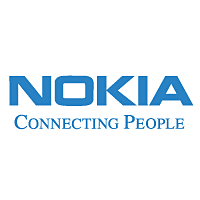Nokia and Vodafone Team Up on Mobile Java Standards

In a move that is intended to deliver benefits for the mobile industry and for mobile customers, Nokia and Vodafone today announce the formation of a mobile service architecture initiative. The aim of the initiative is to simplify mobile Java standards by defining the next generation, open standards-based mobile Java services architecture specifications. It will serve and represent the mobile value chain, including other leading mobile device manufacturers, mobile operators and IT companies.
About Java
The Java language is an object-oriented programming language created by James Gosling and other engineers at Sun Microsystems. It was developed in 1991, as part of the Green Project, and officially announced on May 23, 1995, at SunWorld; being released in November.
Java 2 Platform, Micro Edition or J2ME is a collection of Java APIs targeting embedded consumer products such as PDAs, cell phones and other consumer appliances.
J2ME has become a popular option for creating cell-phone games as they can be emulated on a PC during the development stage and automatically uploaded to the cell-phone. This contrasts with the difficulty of developing, testing, loading games for other special gaming platforms such as those made by Nintendo, Sony and others as special and expensive hardware and kits are required. Some cell-phone makers also extend the J2ME platform to provide more robust effects such as 3D graphics and audio which lacks a specification in the current J2ME APIs.
The initiative will function and create its specifications within the Java Community Process(SM) (JCP(SM). Earlier this month, the J2ME(TM)Executive Committee approved the first Java Specification Requests (JSRs) from this initiative. These JSRs, 248 and 249, will not introduce any new API specifications but will include a number of new component JSRs and clarifications to existing specifications to define a consistent Java API services architecture. This will enable application compatibility across multi-vendor mobile devices.
The initiative will further seek to harmonise the licensing terms of the component JSRs to be open, fair and predictable. As specifications leads Nokia and Vodafone, in conjunction with Sun Microsystems, will define the licensing framework of the initiative, while the role of creating and licensing the Technology Compatibility Kits (TCKs) for JSR 248 and 249 will be undertaken by Sun Microsystems.
The initiative has received widespread support from leading representatives of the mobile industry, including Orange, Siemens, Sony Ericsson, Sun Microsystems and T-Mobile International. It is expected that a number of these companies will join Nokia and Vodafone to become members of the Expert Group for the specifications created by this initiative.
By using the specifications, developers can create software that is easily portable from one Java-enabled mobile device to another. This will ultimately provide mobile customers with a wide choice of feature rich Java-based applications.
The management framework of the mobile Java services architecture also includes security enhancements. It will support advanced remote platform and application management for enterprises and service providers by enabling delivery and management of software components to mobile devices over-the-air. This is expected to result in cost savings for mobile software maintenance. Furthermore, it will offer business users and consumers an easy way to have the latest applications and services available on their mobile devices. The application platforms built on these specifications will enable new business opportunities for operators, enterprises, service providers, and device manufacturers.
The objectives and responsibilities of the initiative will be aligned and coordinated with organisations such as the OSGi Alliance, the Open Mobile Alliance (OMA), the Open Mobile Terminal Platform (OMTP) and World Wide Web Consortium (W3C) to specify the requirements and the capabilities of the platform. The specifications will also offer smooth backward compatibility with the highly successful MIDP environment.
John Jackson, Senior Analyst, Wireless/Mobile Technologies, The Yankee Group commented, "This initiative extends the foundation of JTWI, taking important steps to align the CLDC and CDC platform specifications and their future evolution under a simplified licensing structure. With the support of leading industry players in the mobile Java value-chain, this initiative should offer greater consistency and continuity to developers and end-users. It's a significant step toward accelerating the development and distribution of more robust mobile applications."
"This initiative will significantly strengthen Java's leading position as the environment for powerful, state-of-the-art mobility solutions for both consumers and enterprises in the era of 3G," said Pertti Korhonen, Chief Technology Officer, Nokia. "It provides enterprises and service providers with unparalleled end-to-end management capabilities. In addition, it offers application developers the best and fastest opportunity to leverage their Java-based solutions in volumes and also lets them fully exploit the great performance of Java-enabled smart phones."
Alan Harper, Group Strategy Director at Vodafone, said: "The mobile industry is aware of the need for standardisation and a lot of work has been undertaken towards achieving that aim. It will build upon the JTWI vision, and output from other industry groups, to create an open and evolving platform roadmap to enable consistent and predictable implementation on a wide range of mobile devices."
"As the inventor of Java Technologies, Sun welcomes the leadership of Vodafone and Nokia to spearhead such an important effort within the JCP", said Alan Brenner, Vice President of Sun Microsystems. "Sun will develop and deliver the underlying Technology Compatibility Kits and Reference Implementations for these new specifications. Together, we will build on the widely adopted Java Technology for the Wireless Industry (JTWI) specification and streamline the advancement of mobile Java technologies."
The participants of the initiative have committed to deploy the platform, and the first reference implementations are scheduled for next year.
Source: Nokia

















